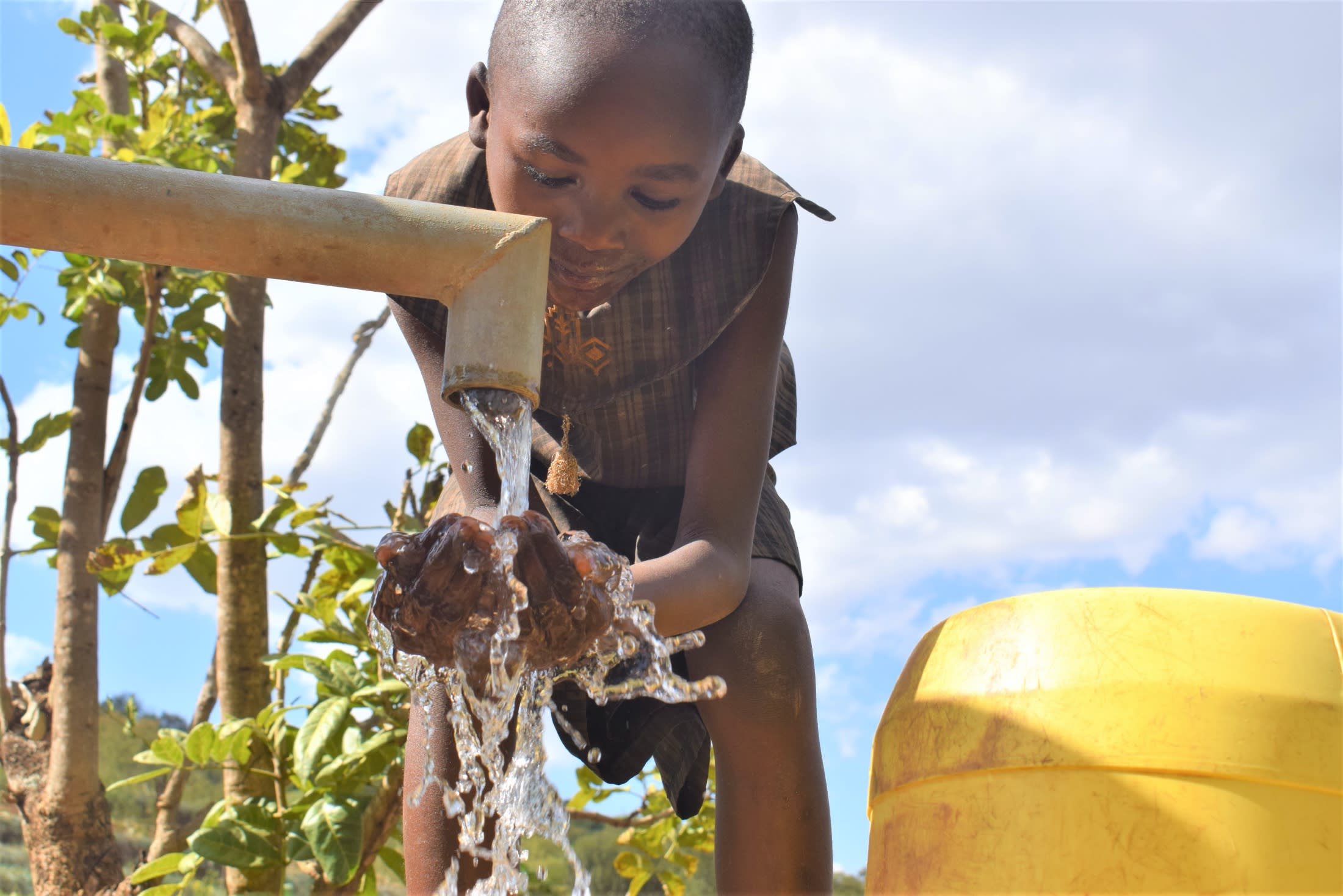This is the third year we have worked with the Kiluta Sand Dam Self-Help Group. Two dams and two wells have been constructed, giving people access to safe water for drinking and a source for irrigating their crops.
They have made really good use of the already existing dams. Their aim is to avail more water near all the members of their group in order to widen the scope of water that reaches them thus improving their livelihoods.
Many people still must walk more than a mile each way to access the new well and benefit from the dams. Furthermore, a single well is not enough to supply clean water for the more than 2,000 people in this community. So we plan to construct another well and dam to ensure that everyone has safe water nearby.
"Availability of water from the installed projects is helping improve our living standards through increased water access, many of our homesteads are now clean with high levels of hygiene and sanitation. Implementing more projects will continue bringing about positive change," Mrs. Felisters Kituku, a local farmer, said to us.
This self-help group works with us as a part of a five-year development program. They were trained during the construction of their first successful sand dam, and have grown immensely since then.
Go here to see the well and sand dam constructed last year.
The community is found in a rural hilly area with a rough terrain which is largely peaceful and has significant vegetation cover. The majority of the buildings are small houses of individual homesteads which make up the village.
Many people in these villages and the larger Nzaui District are actively involved in large-scale fruit farming in their pieces of land especially mangoes and oranges, the increased production of fruits in the area resulted to the Makueni County government installing a fruit processing plant at the nearby Kalamba Market to tap on produce from the locals.
While just about every home has a pit latrine here, the latrines we visited were in poor condition and smelled bad. There were no signs of regular cleanings and no evidence of clean water available for handwashing.
Universal access to water by all community members remains a challenge with some members coming from far areas from the already implemented water projects. The community members exhibit high levels of commitment to ensure easy access to water by all the population through the implementation of more water projects to reach every corner of this region.
What we plan to do about it:
Our main entry point into Masaani Community is the Kiluta Sand Dam Self-Help Group, which is comprised of farming households that are working together to address water and food scarcity in their region. These members will be our hands and feet in both constructing water projects and spreading the message of good hygiene and sanitation to everyone.
Training
We’re going to continue training the self-help group members and their communities on hygiene and sanitation practices. Though every single household in the area has a pit latrine, they were found to be below average in cleanliness. They were terribly smelly, but we noted that some families are using ash to try and cover up the smell from the pit. Nobody had any water around the latrine to rinse them after use. Less than a third of household have water for handwashing, either. We will affirm community members in what they are doing correctly but will focus on the areas of need improvement such as latrine hygiene and handwashing.
Hand-Dug Well
This particular hand-dug well is being built adjacent to this group’s ongoing sand dam project (click here to see), which will supply clean drinking water once it rains. We have supplied the group with the tools needed for excavation. With the guidance of our artisans and mechanics, the excavated well will be cased, sealed with a well pad, and then finished with a new AfriDev pump.
Excavation takes a month or more on average, depending on the nature of the rock beneath. Construction of the well lining and installation of the pump takes 12 days maximum. The well will be lined with a concrete wall including perforations so that once it rains, water will filter in from the sand dam.
This well will be located in Masaani Village and will bring clean water closer to families having to walk long distances for their water.

 Protected Dug Well
Protected Dug Well
 Rehabilitation Project
Rehabilitation Project





























